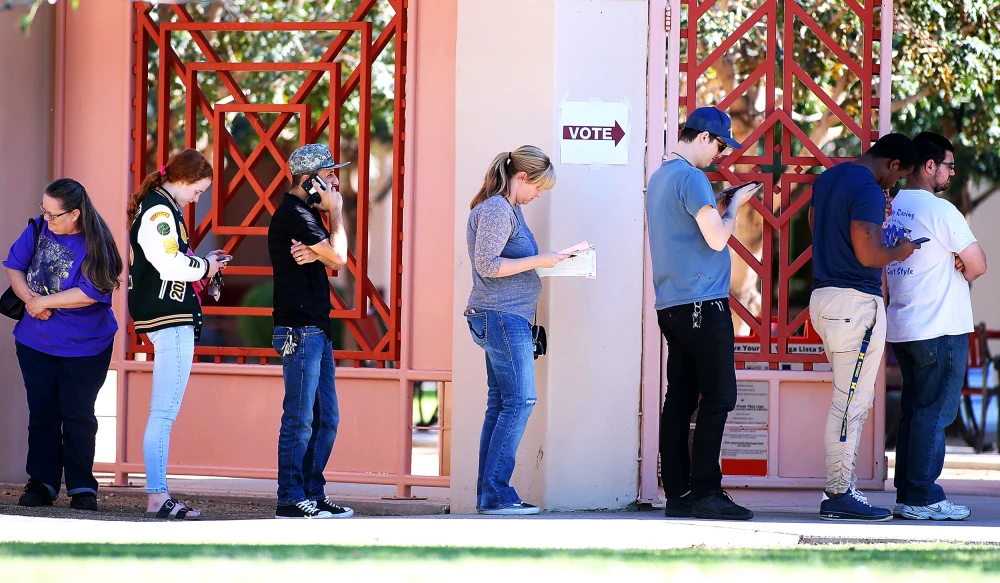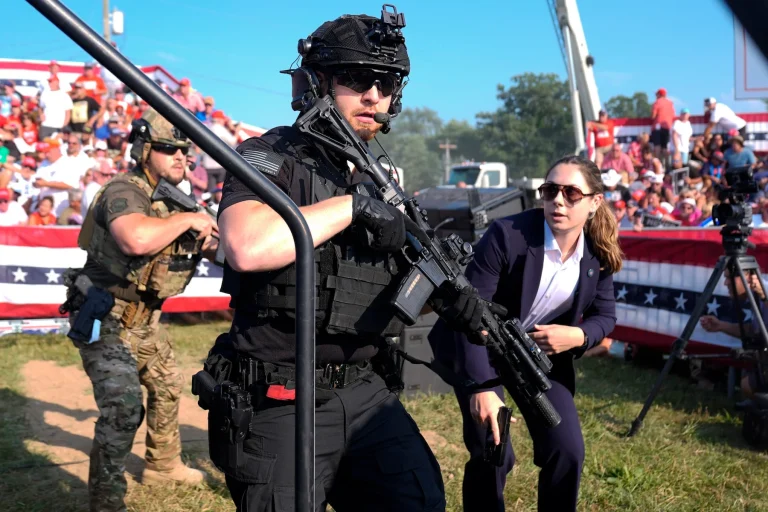Election officials nationwide are significantly enhancing security measures at polling places as voting unfolds in the presidential race. These efforts include increasing law enforcement presence, equipping staff with bulletproof vests, and utilizing drones for aerial surveillance, all in response to a growing climate of hostility.
The task of managing elections in the U.S. has become increasingly perilous since the 2020 election cycle, marked by harassment, threats of violence, and disruptive protests targeting poll workers. This challenging environment has led many election officials to leave the field, while those who remain are taking bold steps to ensure the safety of both workers and voters ahead of Election Day. To encourage poll workers to stay during this stressful period, some jurisdictions are offering increased pay.
County and state election officials shared insights into their security strategies in recent interviews with NBC News.
In Arizona’s Maricopa County—a focal point for conspiracy theories and protests driven by unfounded claims of voter fraud—the security measures are among the most stringent in the nation. The tabulation center will feature snipers on the roof, metal detectors at all entrances, drones patrolling the skies, and enhanced security cameras and floodlights to assist law enforcement in monitoring the area.

The site will also have two layers of security fencing, and some poll workers will be transported from off-site parking to mitigate any risks associated with the newly instituted protocols.
“They spared no expense in 2022, and they’re all in again this cycle,” remarked Stephen Richer, the Republican Recorder of Maricopa County, regarding local law enforcement’s preparations.
In Cobb County, Georgia, sheriff’s deputies will be stationed at every early voting site and will patrol local precincts. The county has established an emergency operations center at the local 911 call center, where personnel will monitor CCTV feeds and social media to track everything from traffic to potential disturbances at the polls.
“They’ll be pulling up the cameras closest to all 148 polling places to keep an eye on traffic, accidents, and any high-volume situations,” explained Tate Fall, the county’s director of elections.
The county has also allocated funds for panic buttons, allowing election workers to contact authorities swiftly in emergencies. However, due to logistical challenges—such as the lack of smartphones for poll workers—they opted to provide police radios instead.
In neighboring Gwinnett County, the sheriff’s office will oversee security across all polling locations, even in areas usually monitored by local police. With local schools closed on Election Day, school police officers will assist at polling sites.
The local election office will deploy police officers trained to handle election-specific situations during early voting and the counting of absentee ballots, according to Zach Manifold, the county’s elections director.
In Detroit, Daniel Baxter, who manages absentee ballot counting, reported that poll worker compensation was doubled in 2022 to attract more qualified candidates. This year, workers who commit to three shifts counting absentee ballots at the convention center—an area previously disrupted by protesters alleging fraud in 2020—will earn $2,250.
In Milwaukee County, Wisconsin, law enforcement plans to restrict access to the street outside the election results tabulation building, as noted by Aaron Dobson, an inspector with the Milwaukee County Sheriff’s Office.
In Colorado, state mandates require counties to conduct security assessments related to elections, with state funds available to support necessary upgrades.
Some county officials are using these funds to enhance locks and cameras, while others have installed bulletproof glass and acquired bulletproof vests. Colorado Secretary of State Jena Griswold, a Democrat, noted that poll workers will also receive an additional $3 per hour, consistent with the premium they earned in 2020.
New legislation aimed at preventing insider threats mandates continuous surveillance of election equipment and access control through keycards.
Griswold emphasized that state officials are preparing for unprecedented threats, including those posed by artificial intelligence.
“We have layers of security—military and law enforcement are collaborating to safeguard our cyber support systems,” she stated. “Voters will use paper ballots, which can’t be hacked, but we’re also focused on protecting our support infrastructure.”
Griswold and her team face threats regularly; one individual who threatened her was arrested while she was hospitalized for childbirth.
“We take our security protocols very seriously,” she affirmed. “But the most important aspect is that we conduct voting on paper.”

